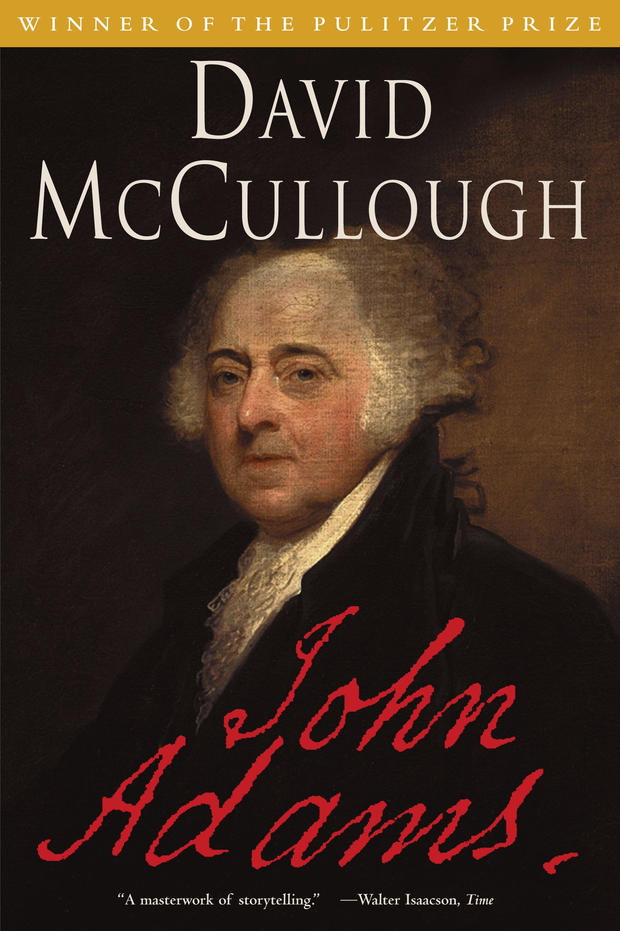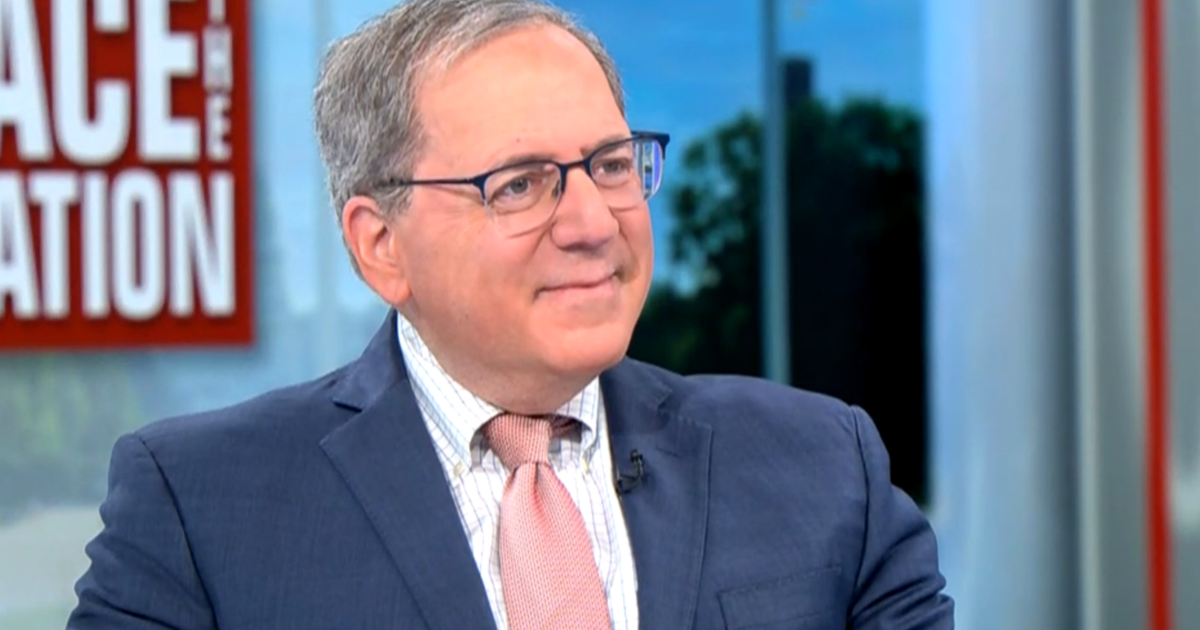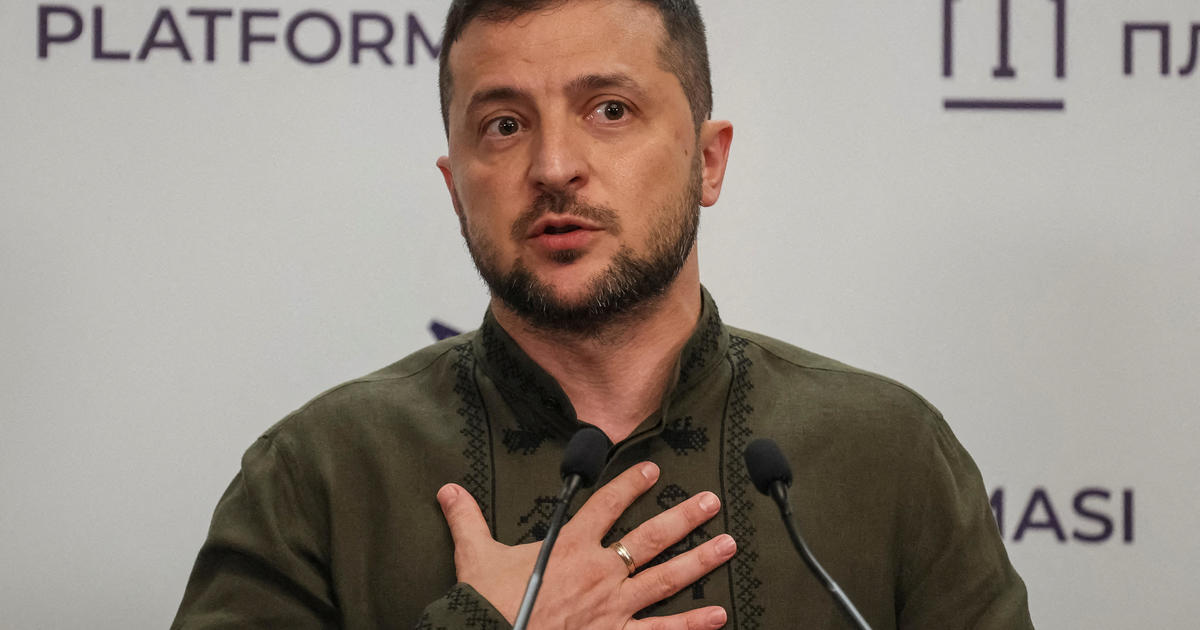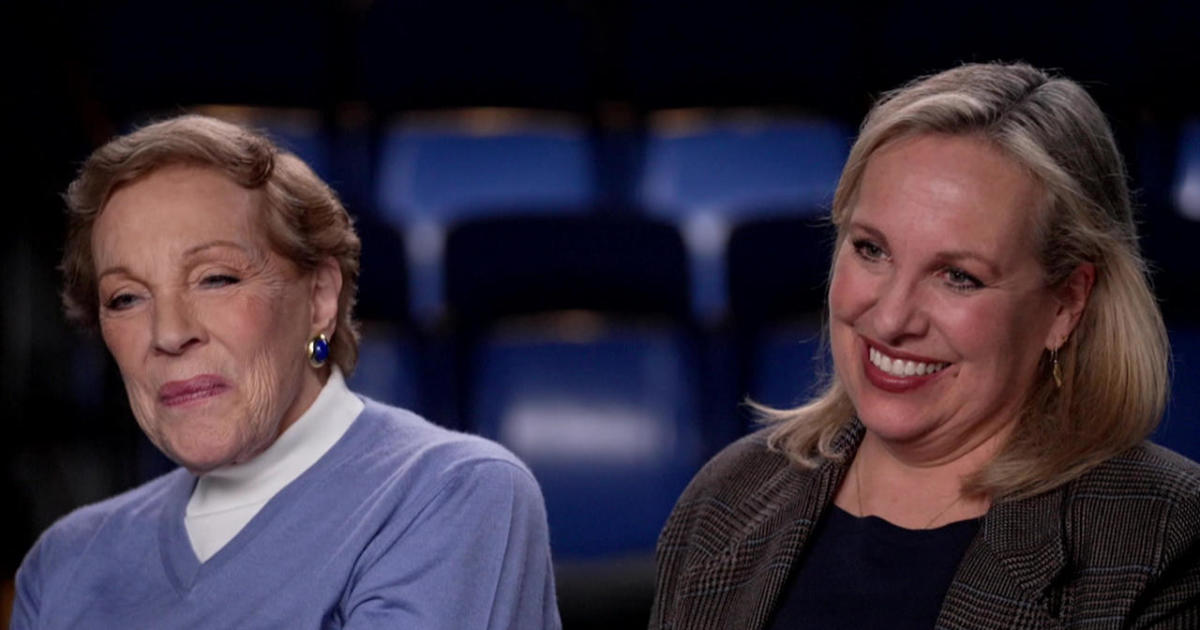From the archive: David McCullough on the life of patriot John Adams
Pulitzer Prize-winning historian David McCullough died August 8, 2022 at age 89. In this "Sunday Morning" interview, originally broadcast on July 1, 2001, he discusses his biography of an overlooked Founding Father:
In the cool grandeur of the National Archives in Washington, where the Declaration of Independence and the Constitution are enshrined, historian David McCullough is anything but cool about how history has treated one of the major forces behind those two documents: John Adams.
"There's no statue to him in Washington," McCullough told correspondent Rita Braver. "There's no face on Mount Rushmore. There's no monument. There's no picture of John Adams on our money. There isn't a postage stamp in circulation with John Adams' picture on it. This is a disgrace!"
But now McCullough, one of the most influential historians of our time, has become an Adams advocate, using his skills and his celebrity to introduce Americans to this forgotten patriot, with a massive new biography, "John Adams."
"I started to write a book about Adams and Jefferson and their crisscrossing, intertwining lives," he recalled. "And the more I got into it, the more I read, the more I discovered how much I didn't know about John Adams."
And so, he decided to drop Jefferson and focus on Adams, whom he describes as "this rather short, stout, round-faced fellow who loves to talk, loves to have a good case of Madeira, loves his family and friends around him."
Why is Adams the least-known of the Founding Fathers? McCullough says it's in part because he was not as dashing as Washington or Jefferson, not as folksy as Benjamin Franklin.
"He's quick-tempered," explained the historian. "He's abrasive at times. He's often tactless. He can be vain. He's brilliant. I think that's probably the main thing to know about John Adams: He had a great capacity to move people with the force of argument. He was, himself, a force."
A force that sprang from humble beginnings in Quincy, Mass. His father was a farmer who moonlighted as a shoemaker. The family homestead still stands, described by McCullough as "a straightforward, simple, bedrock New England salt box – built to last. And right next door, where John and Abigail lived while they were married, is (a) second house, which is actually older than the other house."
It was from that simple house that Adams journeyed to Philadelphia, to lead a revolution, in full knowledge that the British could hang him for treason. In the film "1776," which features one of the few popular portrayals of Adams, he is shown trying to move a reluctant Continental Congress to break from the British. In the end, it was Adams who won the day, recruiting Jefferson to write the Declaration of Independence, and then driving it to passage.
"He spoke for two hours," says McCullough. "He spoke for two hours and, as Jefferson said, 'He moved us from our seats.' And if Jefferson was the pen of the Declaration of Independence, Adams was the voice."
And he became his nation's diplomatic voice. When the fledgling nation needed a representative to Europe, during the Revolutionary War, Adams was dispatched. He helped persuade the French to commit more of their fleet to the war, and he secured vital financial help from Holland.
"We were broke, we were bankrupt," said the historian. "We couldn't pay for the war we were trying to fight, and he managed to get the Dutch to come in with a substantial loan. The first real line of credit we had in Europe. We needed money desperately, and he got it,
We also needed a way to end the war, and he got that, too, negotiating the Treaty of Paris along with John Jay and Benjamin Franklin. We needed a Constitution, and so, while he was still overseas, it was modeled after the one Adams had written for the Commonwealth of Massachusetts.
For 10 long years, affairs of state took precedence over affairs of the heart. Much of the time, Adams was separated from his beloved wife and pining for her.
McCullough terms their partnership "one of the great love stories in American history." And it is also true, documented in 1,000 letters that is one of the greatest collections of American correspondence.
John to Abigail in 1776: "I want to hear you think. I want to see your thoughts. The conclusion of your letter makes my heart throb more than a cannonade. You bid me burn your letters, but I must forget you first."
Abigail to John in 1780: "My dearest friend, how much is comprised in that short sentence. How fondly can I call you mine."
McCullough says, "He felt that women, in general, were probably superior to men, in general, and he respected her intelligence, her mind, as he respected, maybe, nobody else."
But if their marriage was perfect, Adams' political life was not.
He served as the nation's first vice president, prophetically pronouncing it "the most insignificant office that ever the invention of man contrived." In 1797, he became the second president of the United States, the first ever to live in the White House.
His greatest accomplishment, McCullough said, was bucking Alexander Hamilton and others who wanted to begin what would surely have been a disastrous war against France over maritime shipping routes.
On the downside, Adams did sign the infamous Alien and Sedition Acts, which (until they were done away with a few years later) allowed foreigners to be expelled without due process and infringed on freedom of the press.
And in the end, his old friend Thomas Jefferson, secretly working against him, defeated him for a second term in office.
"They had a big falling out," says McCullough. "They really did dislike each other for a spell. But it probably was inevitable that they would have a reconciliation."
It came when Adams finally wrote to Jefferson, beginning a 10-year correspondence from the home that he and Abigail lived in during their later years.
In 1824, he learned that his son, John Quincy Adams, was elected president. Until George W. Bush took office, the Adamses were the only father and son to both hold the nation's top job.
"Well, first of all, he was excited, he was exhilarated, he was proud, all the emotions that one would expect," says McCullough. "But John Adams, in effect, broke down in tears because he knew what an ordeal the son would have to go through as president. He knew from experience how tough it is, how disappointing it can be, how painful it can be to be president."
McCullough's book about Adams has vaulted to the top of the best seller lists, and McCullough is hoping that it has spurred enough interest in his hero to, at long last, move Congress to authorize an Adams memorial.
"John Adams was one of our best ever," says the author. "He was brave. He was honest. His devotion to the service of the country, the public good, was beyond almost any other public example. He was a true patriot in every sense of the word."
Adams lived to be 90. He died on July 4, 1826, the 50th anniversary of the Declaration of Independence. And, incredibly, it was also the very day that another former president and signer of the Declaration died: Thomas Jefferson, entwined with Adams in death as in life.
Said McCullough, "If it were a movie, and you recreated it exactly as it was, people would say, 'Well, that was overdoing it.' Cannons were booming, crowds were outside. It had started to rain. And when he died, according to all the accounts written at the time, the skies cleared, and this huge burst of sunlight came in. And nobody could ever forget it, who was present."
And, 175 years later, the legacy of John Adams is shining anew. As McCullough told a Congressional hearing, "The idea that he has stood in the shadows all these years does not reflect well on any of us. The time is long past due to give him his place in the American pantheon and in our American hearts."
For more info:
- "John Adams" by David McCullough (Simon & Schuster), available in Hardcover, Trade Paperback, eBook and Audio formats
- Adams National Historical Park, Quincy, Mass. (National Park Service)
- Massachusetts Historical Society
- National Archives
More with David McCullough:




